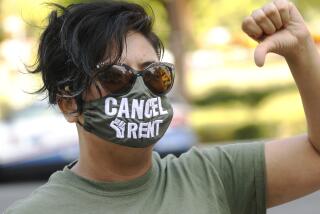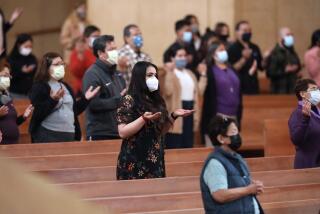Religious Harassment Rules Shelved
WASHINGTON — The Equal Employment Opportunity Commission on Monday withdrew proposed regulations governing religious harassment in the workplace after a storm of protests from Congress and the public.
The proposed rules were part of comprehensive guidelines governing workplace harassment that the commission voted 3-0 to withdraw.
The controversy arose a year ago when an Atlanta lawyer began advising business clients that they could avoid religious harassment lawsuits under the guidelines only by banning all religious expression in the workplace, including the wearing of a cross or a yarmulke.
Church groups quickly took up the cause, flooding the EEOC and congressional offices with thousands of letters and telephone calls. Mike Widomski, a spokesman for the EEOC, estimated that the commission received more than 100,000 letters urging it to drop religion from the harassment guidelines.
As originally drafted, the guidelines defined unlawful religious harassment as any verbal or physical conduct that “denigrates or shows hostility or aversion toward an individual because of his-her . . . religion . . . or that of his-her relatives, friends or associates.”
EEOC spokesman Mike Widomski said the commission “felt it was better to withdraw the guidelines in light of the public outcry and the number of letters that were received.”
Sen. Howell Heflin (D-Ala.), one of the leaders of congressional opposition to the guidelines, said that “this is certainly a victory for religious freedom.”
In June, the Senate approved a resolution by a 94-0 vote calling on the EEOC to drop religion from the proposed workplace harassment guidelines. A month later, the Senate inserted an amendment to fiscal 1995 spending legislation for the EEOC instructing the commission to remove religion from the proposed rules.
While the religious harassment rules sparked the controversy, the guidelines also were intended to address workplace harassment on the basis of race, color, sex, national origin, age or disability.
Widomski said the commission has no immediate plans to draft new guidelines.
More to Read
Get the L.A. Times Politics newsletter
Deeply reported insights into legislation, politics and policy from Sacramento, Washington and beyond. In your inbox three times per week.
You may occasionally receive promotional content from the Los Angeles Times.










